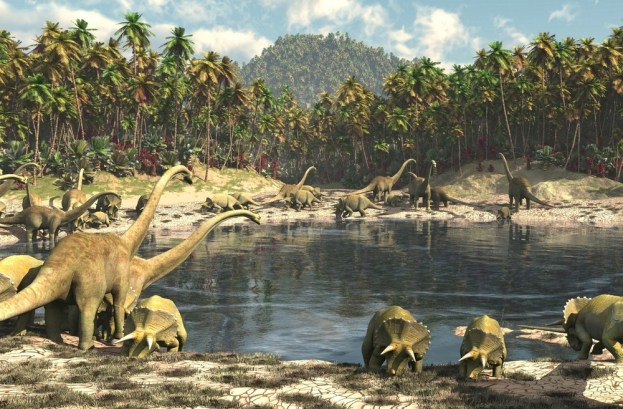
At a TEDxDeExtinction talk last week, a duo who co-founded a biomedical startup aims to make the impossible possible by bring extinct creatures back to life. It’s Jurassic Park like you’ve never seen coming, one that may also be filled with woolly mammoths, golden toads, Dodo birds, and other long-gone friends. In short, a Museum of National History brought to life.
The company, Ark Corporation, led by stem cell and DNA researchers Robert Lanza and George Church says the technology relies heavily in pluripotent stem cells (iPS cells). To make the stem cells highly potent, the team will inject chemicals and modify ordinary skin cells so they are able to reproduce body tissues – including the sperm and egg. Once the iPS cells are able to replicate sperm and egg, these artificial cells can conjoin to revive virtually any living species regardless of when it died.
“We will make iPS cells from a band-tail pigeon, splice in passenger pigeon DNA, then try to make sperm and maybe eggs,” Lanza said at the TEDx event in Washington, D.C. last week, according to Technology Review. Other animals the team is interested in reviving include the recently extinct Pyrenean ibex, a mountain goat. The Pyrenean ibex will be a bit easier to attempt recreation since skin samples are more available than the passenger pigeon’s, which reached extinction in the early 20th century.
This isn’t the first time someone has tried to clone extinct animals. In 2011, a professor at Kyoto University in Japan wanted to revive the woolly mammoth by injecting unfrozen cells into a modern elephant’s egg cell. We’ve yet to hear updates since, meaning the challenges are likely ongoing.
It will be long until we ever see signs of a restored extinct animal, but if Church and Lanza could bring back clones of these forgotten animals, their technology will open to a wildly human-relevant window. For example, if iPS cells can regenerate the sperm and eggs from a human donor, then theoretically same-sex couples could reproduce a child that bare both parents’ genes regardless of their gender. Similarly, those who are infertile due to reproductive issues or age could still possibly lend cells to create an offspring with their own DNA. Or, get this, if skin samples were available, a person could attempt to reproduce a child with a deceased spouse if they can clone his or her reproductive cells. The entire concept is mind blowing beyond imaginations, but that’s not Ark Corporation’s goal per se. “It’s not part of the company. And if it were, we wouldn’t be saying it,” Church told Technology Review.
We could still dream of a Jurassic Park-style museum though.
Image via Shutterstock/Computer Earth


